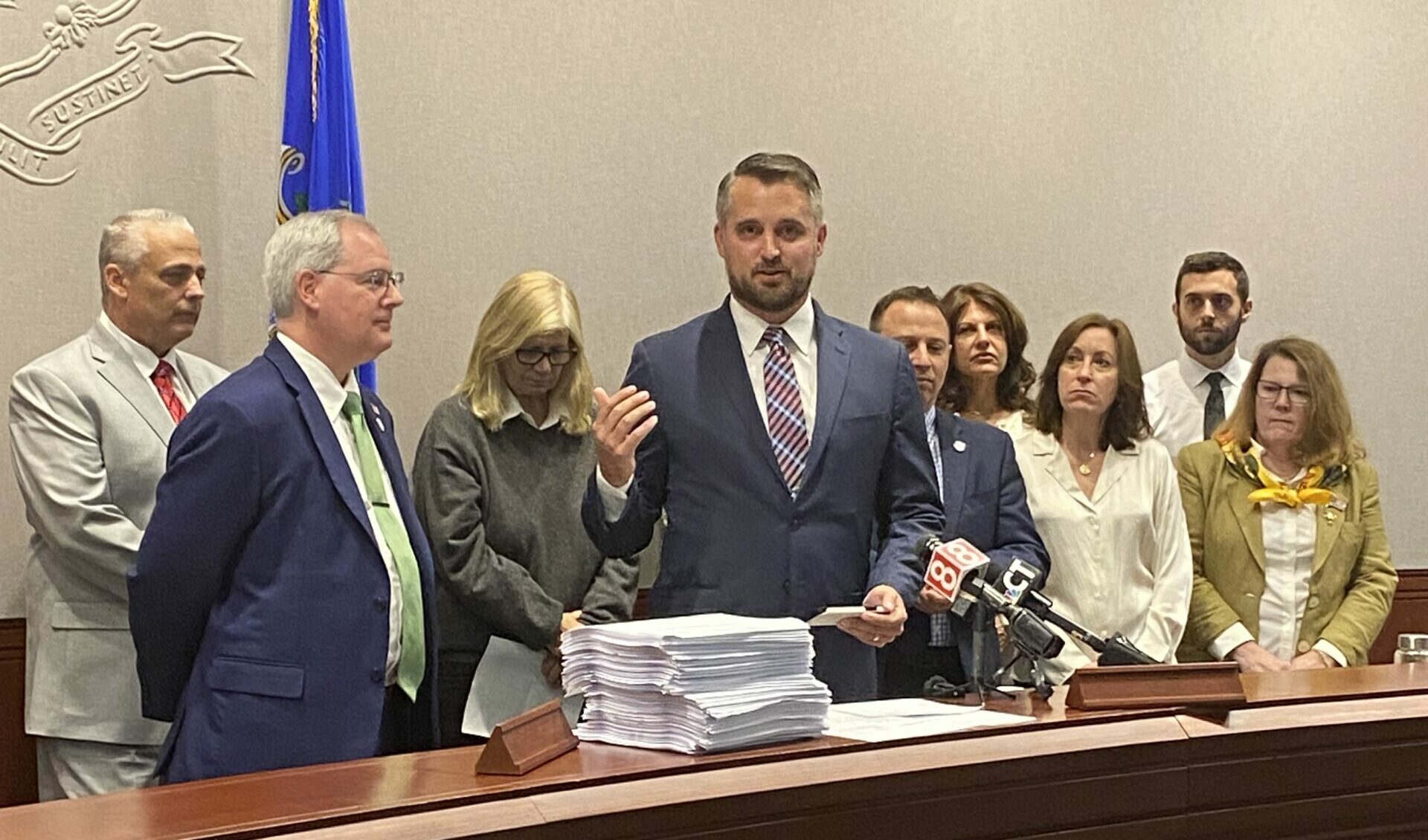The following remarks were given by Bryce Chinault, Yankee Institute’s Director of External Affairs at a press conference at the Legislative Office Building on Oct. 24, 2024. The press conference focused on the Public Benefits Charge, which passes along to consumers the costs of the government mandates imposed on power companies for a variety of state energy policies, including “clean” energy. During the day’s events, Scott Pearson, a Monroe resident, delivered a petition to Gov. Ned Lamont’s office that garnered nearly 68,000 pleading for financial relief.
My name is Bryce Chinault and I’m Director of External Affairs for Yankee Institute. We’re pleased to be part of this coalition for commonsense energy policies.
Connecticut’s families want and deserve a safe and healthy environment for ourselves and our children. At the same time, we can’t let our environmental policies ruin our economy and make people poorer. We need clean air and water — but we need to be smart about the policies we use to get there.
Too often, so-called “green” policies like the electric vehicle (EV) mandate do little or nothing to create a cleaner environment. They do impose lots of costs, though, especially on the people least able to bear them. They make our state less affordable and living here more difficult.
In fact, the reason we’re here today is a prime example. People are right to be outraged about the public benefits charge on their electric bills. What’s more outrageous is that a chunk of the charge is going to build EV infrastructure when our state’s wealthiest people are the ones driving EV’s — which are their second or even third vehicles. All the infrastructure for them is being paid for by middle class households. That just doesn’t make sense. It isn’t fair.
Rather than picking winners and losers, Connecticut should be working to bring down energy costs for everyone and making it easier to bring more energy online. There is no reason Connecticut must be one of the most expensive states in the country to keep the lights on in. We can do better. It’s time to start looking at what makes sense — for the environment, but also for the bottom line.

